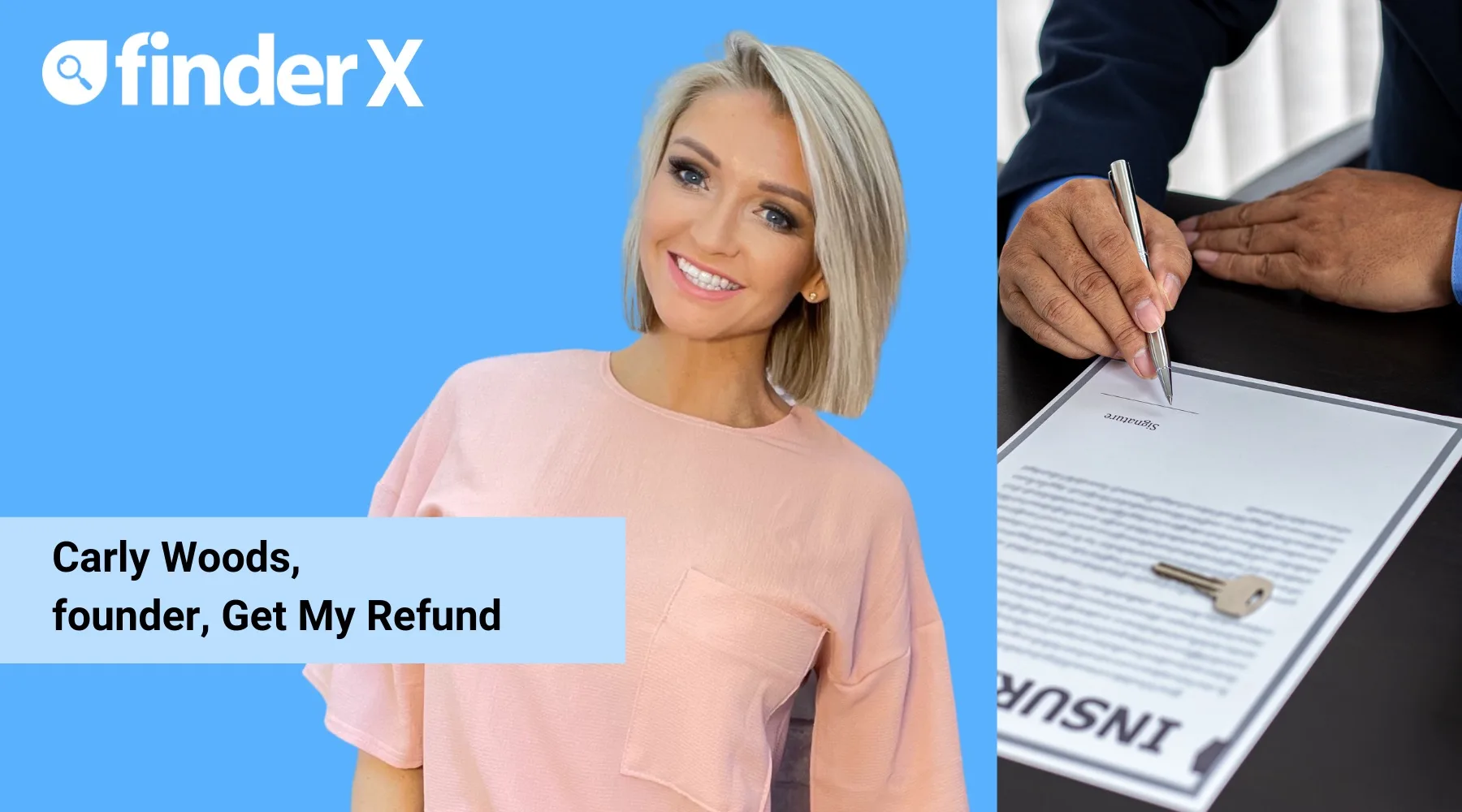Junk insurance: Are you due a refund? (and how to claim money back)

Class actions are currently underway against CBA, Westpac, Allianz and MTA – here's how to find out if you are eligible to claim any money back.
These class actions all relate to what's known as junk insurance policies. Swann Insurance policyholders have just had their day in court, and the judge awarded policyholders $138 million for junk insurance, sold to unsuspecting car and motorbike buyers between 2008 and 2017.
The outcome of this lengthy court case is that some policyholders are set to receive around 10 cents out of every dollar they paid for their junk insurance. This is despite IAG, the parent company of Swann Insurance, itself estimating that it charged $1 billion in premiums for these policies, which gave consumers absolutely no benefit at all.
What is junk insurance?
Junk insurance is a term for an insurance product or add-on that's unnecessary or worthless to a consumer, says James Martin, Finder's senior writer of insurance. Insurers must act in the best interests of their customers, offering products only where there's a genuine need for cover. They must also give accurate information on the terms and conditions of a policy. Anything that doesn't fall into these categories can be labelled 'junk insurance'.
What are these junk insurance policyholders entitled to?
Not all policyholders will receive compensation, even though all policyholders are part of the class action (unless they acted within a small window to opt out to pursue a claim on their own or with a refund company).
The problem is that many people who were sold a dodgy Swann policy may not even be aware that they even held the insurance – and if they are not contactable by the law firm who undertook the class action, they will get absolutely nothing. Yes, nothing.
Even those who unknowingly were a part of the Swann Insurance class action and receive no refund, will waive their right to ever complain directly to Swann if they are not happy with the refund amount, or if they missed out completely on any refund. This is not a great situation for these policyholders.
How to avoid getting ripped off by under-regulated industries
CBA, Westpac, Allianz and MTA policyholders: Your time has come
The Swann class action is typical of the way that class actions work, and next up, CBA, Westpac, Allianz and MTA will go through the same process in separate class actions.
These banks and insurance companies have admitted to selling thousands of people policies that were not worth the paper they were printed on. MTA is a relatively unknown insurance company that sold policies through car dealers.
It is now decision time for other policyholders to act, and there are 2 important choices to be made.
- Find out whether you are eligible for any refund.
Often the problem is that many consumers are not sure whether they have or had the insurance in question.
If you can find your policy details and you're aware of a class action, you can apply to your bank. If you struggle, you can go to the ombudsman (AFCA) for assistance. If you can't find your old policy details, you will need a company that can help you search for any eligible insurance you may have once held.
Companies like Get My Refund can help find out whether you held the policy and are due a refund, even if you are not sure or no longer have the policy details. They are paid services and the rates vary.
Refund companies will generally take between 20% and 30%, but the policy holder will get 100% of what is owed and interest on premiums.
- Decide if you will stay in the class action or opt out.
Holders of policies including GAP insurance, personal loan protection, customer credit insurance, rim and tyre insurance and extended warranties with CBA, Westpac, Allianz and MTA must decide whether to opt out of the class action.
If you opt out of the class action, you can pursue a refund on your own through the complaint process with the Provider, with escalations to Australian Financial Complaints Authority (AFCA) or with a refund company like Get My Refund.
Pursuing a refund directly will cost you nothing, whereas a refund company will take a cut of your refund. However, policyholders may get the entire amount they paid for the premiums, plus interest, which is generally more than they would get by going direct.
For Swann Insurance customers, a refund company would typically achieve a result of 70c or 80c in the dollar; this refund is 7 times the amount that class action group members received. Refund companies are also able to find out if you are due other refunds with other providers.
For instance, one person I'm working with opted out of the Swann class action, and got $1,511. Had he participated in the class action, he would have got around $100 back. With the fees taken into account, he ends up with around $1,000.
If you think you may be due a refund, here's your next step

If you find out you may be eligible for a refund or compensation, you can either join the class action, or complete an opt-out form and mail it to the relevant Federal or Supreme Court by the deadline. These forms are available from the insurance company.
To stay in the class action, you do not need to do anything except update your details with the law firms handling the class action.
You would need to contact your bank to request the policy documents, but if you don't know specific dates, you may struggle.
The banks are required to notify the customers of class actions but in many cases, emails change and people don't receive or even open the notification. In theory, you could ask a refund company to investigate your policy, and then pursue it yourself. There's no cost to the customers until they receive a payout, but it's actually really difficult for customers to get the information.
In the absence of a crystal ball, knowing how much you will receive through a class action is impossible. It is up to every policyholder to decide whether they want to wait for a class action to go to court, or pursue their own refund to obtain a speedier resolution.
You should consider the terms of the class action, which are available online, and speak to AFCA and refund companies to find out the alternative ways of obtaining their refund. As with everything, education is power and puts policyholders at the top of their class.
Carly Woods is the founder and CEO of Get My Refund, which specialises in reclaiming money for consumers from mis-sold financial services products such as consumer credit insurance, superannuation financial advisor fees, life insurance and irresponsible lending refunds.
Disclaimer: The views and opinions expressed in this article (which may be subject to change without notice) are solely those of the author and do not necessarily reflect those of Finder and its employees. The information contained in this article is not intended to be and does not constitute financial advice, investment advice, trading advice or any other advice or recommendation of any sort. Neither the author nor Finder has taken into account your personal circumstances. You should seek professional advice before making any further decisions based on this information.
Read more Finder X columns
-
All the big savings account interest rate rises: ING, AMP, Westpac + more
6 Feb 2026 |
-
Australian credit card debt soars 10% in a year: How can you escape the trap?
6 Feb 2026 |
-
4 cashback home loan offers to ease the pain of RBA rate hike
4 Feb 2026 |
-
Finder’s RBA Survey: Easing cycle ends as RBA delivers first rate hike since 2023
4 Feb 2026 |
-
Ubank Save is increasing its bonus rate up to 5.35% p.a.
3 Feb 2026 |
Ask a question

Hi I was just wondering I had insurance protection from CBA a while ago on a couple of personal loans that I had I was wondering if they do qualify they were around about that 2014 2015 Mark
Hi Colin,
It looks like the deadline to be part of this class action has already passed and you may no longer be eligible for compensation. Looks like Slater & Gordon handled it, you can take a look at the information available about it here: https://www.slatergordon.com.au/class-actions/current-class-actions/consumer-credit-insurance/cba-consumer-credit-insurance
I have a BOQ mortgage Oct 2015. I purchased
St Andrews Aust Consumer Credit Insurance for $15286.50 on this mortgage. Am I eligible for a claim?
Mortgage insurance was not part of this class action, so this wouldn’t be eligible
Is Lenders Mortgage Insurance QBE Lenders Mortgage Insurance Ltd through Suncorp considered junk insurance ?.
Hi Patrick,
LMI is a type of insurance that allows you to buy a property with a deposit of less than 20%. Without, you would not be able to own a home until you have at least a 20% deposit saved. It’s not junk insurance, as you gain an immediate benefit after taking out the policy (whereas junk insurance rarely provides any benefit at all). Hope this helps!
Is Mortgage Guarantee Insurance and Penalty interest considered Junk Insurance
Hi Krief, These forms of insurance wouldn’t be considered “junk insurance” for the purposes of the class action discussed here.